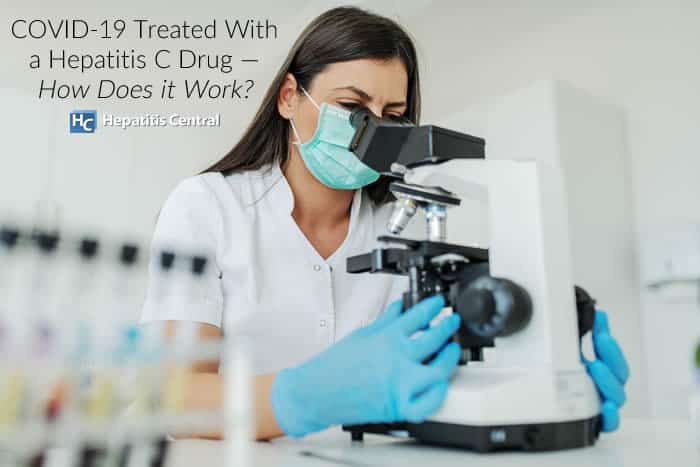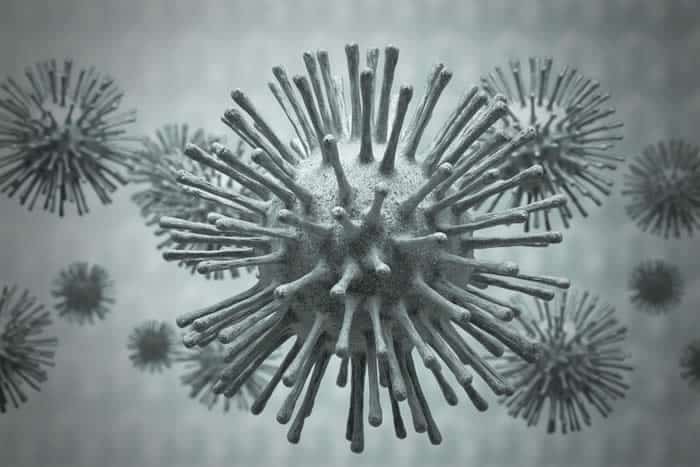COVID-19 Treated With a Hepatitis C Drug — How Does it Work?


Back in April, it was announced (1) that one of the leading pharmaceutical companies in India received approval to treat COVID-19 with a hepatitis C drug. Trials showed that the drug, Pegylated Interferon alpha-2b (‘PegiHelp’), helped those with COVID-19 recover quickly and have limited complications. It was noted that 91% of COVID-19 patients who received treatment from PegiHelp tested negative for the virus by day seven compared to only 79% who were given regular COVID-19 care.
As research continues to emerge, it has been noted that this hepatitis C treatment targets the viral protein NSP3 which is linked with the SARS-CoV-2 virus (the virus that causes COVID-19).
Keep reading to learn more about the relationship between the two.
What is Viral Protein NSP3?
When a virus enters our body, it creates viral proteins that hijack our cells to support their own life. Viruses tend to be made up of RNA or DNA as their genetic material, which can encode these viral proteins. Simple viruses could wind up encoding around 4 proteins where more complex viruses can form 100 to 200 proteins. (2)
The SARS-CoV-2 virus encodes at least 30 proteins that are broken down into 3 different functional groups. They include:
- Replication-transcription, which copies the genome to create viral proteins
- Structural proteins
- Accessory genes, that specify functions that are necessary for multiplication and growth
There are also non-structural proteins, which is a protein that is formed by the virus, but isn’t part of the viral particle. These non-structural proteins are important to replicate the virus, which is why they are the target for antiviral drugs.
NSP3 is one of the largest non-structural proteins of the SARS-CoV-2 virus.
Why Researchers are Targeting NSP3
Since the NSP3 viral protein plays a central role in replicating the virus, researchers determined it would be an ideal target for antiviral medication.
One April 2021 study (3) found that 10 hepatitis C virus (HCV) protease inhibitors restrained the replication of SARS-2. Researchers believed this was due to the similar structure between the HCV protease and another non-structural protein, NSP5. The results of the study found that the researchers were correct, and all 10 of the antivirals were able to bind to the NSP5 active site.
Not only that, but 4 out of the 10 antivirals were also able to stop the NSP3 activity.
When the 4 drugs that were able to bind with both NSP5 and NSP3 were combined with remdesivir (another antiviral medication), it increased the antiviral of remdesivir by 10 fold.
The other 6 drugs that only inhibited the NSP5 protein and not NSP3 were not coefficient with remdesivir. Therefore, the researchers concluded that pairing an HCV protease inhibitor with an RNA polymerase inhibitor (remdesivir) could be an antiviral agent against SARS-CoV-2.
We Could Also Be Protected Against Future Viruses

Viruses have a macrodomain, a conserved protein domain, that counter our innate immune response to virus infections. These macrodomains help to replicate the virus, and researchers noted that the NSP3 macrodomain was highly conserved in SARS-2 and other variants. (4) Pinpointing these conserved areas could prevent the escape of SARS-2 mutants with the researchers stating, “targeting the macrodomain offers an attractive target for the development of antiviral agents against SARS-2 and other viruses.”
According to John Hopkins Medicine (5), there are already new variants of the COVID-19 virus. Robert Bollinger, M.D., M.P.H., states in an interview, “all RNA viruses mutate over time, some more than others. For example, flu viruses change often, which is why doctors recommend that you get a new flu vaccine every year.”
Mutated Versions of the Coronavirus
A mutated version of the coronavirus was found in southeastern England back in September 2020. It is known as B.1.1.7 and is the most common form of the coronavirus in the U.K. and some other countries. In Brazil, California, South Africa, and other areas, a variant named B.1.351 appeared and was believed to reinfect individuals who were already recovered from earlier versions of the coronavirus.
These mutations could affect the treatment and prevention of coronavirus, even causing resistance against the vaccines that have been developed. “New variants of the SARS-CoV-2 virus are detected every week,” comments Stuart Ray, M.D., in an interview. (5) “Most come and go — some persist but don’t become more common; some increase in population for awhile, and then fizzle out. When a change in the infection pattern first pops up, it can be very hard to tell what’s driving the trend — changes to the virus, or changes in human behavior. It is worrisome that similar changes to the spike protein are arising independently on multiple continents.”
Bottom Line
Although more research needs to be conducted, researchers have evidence that HCV protease inhibitors could not only help to treat the COVID-19 virus but also prevent it from mutating into different forms. This is due to the treatments targeting viral proteins that help to replicate the virus.
- Can COVID-19 Really Be Treated with a Hepatitis C Drug? (2021, April 21). Retrieved June 17, 2021, from https://www.hepatitiscentral.com/news/can-covid-19-really-be-treated-with-a-hepatitis-c-drug/
- Section 6.3 Viruses: Structure, Function, and Uses. (2000). In Molecular Cell Biology (4th ed.). W H Freeman & Co.
- Bafna, K., White, K., Harish, B., Rosales, R., Ramelot, T. A., Acton, T. B., . . . Montelione, G. T. (2021). Hepatitis C virus drugs that inhibit SARS-CoV-2 papain-like protease synergize with remdesivir to suppress viral replication in cell culture. Cell Reports, 35(7), 109133. doi:10.1016/j.celrep.2021.109133
- Haseltine, W. (2021, June 04). Hepatitis-C Drugs And A Remdesivir Metabolite As New Anti-Covid-19 Drugs: The Viral Protein NSP3 Emerges As A New Target. Retrieved June 17, 2021, from https://www.forbes.com/sites/williamhaseltine/2021/06/04/hepatitis-c-drugs-and-a-remdesivir-metabolite-as-new-anti-covid-19-drugs-the-viral-protein-nsp3-emerges-as-a-new-target/?sh=31a67301448c
- New Variants of Coronavirus: What You Should Know. (n.d.). Retrieved June 17, 2021, from https://www.hopkinsmedicine.org/health/conditions-and-diseases/coronavirus/a-new-strain-of-coronavirus-what-you-should-know







